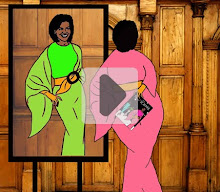“Dear Mother, I meant to write you before this and I hope you haven't been worried.... I have met some Beautiful People...” ― Tom Wolfe, The Electric Kool-Aid Acid Test
R.I.P. Tom Wolfe, the wickedly clever writer who viewed American culture with a clear eye, a steady gaze and chronicled it with a creatively fanciful tongue. Although not a Boomer himself, he did designate them as the “Me Generation.” He also coined some 150 additional terms as cited in the Oxford English Dictionary.
In just one book, published in 1970, Radical Chic & Mau-Mauing the Flak Catchers, Wolfe coined three terms:

Radical chic (“the fashionable affectation of radical left-wing views”), mau-mauing (“using menacing or intimidating tactics against”), and flak catcher (“one who deals with and deflects adverse or hostile comment, questions, etc., in order to protect a person or institution from unfavorable publicity”).
A compilation of two essays, the book is an examination of the intricate dance of black rage with white guilt. The first half of the book is set in Leonard Bernstein’s Park Avenue duplex where the conductor had assembled many of his wealthy socialite friends to meet with representatives of the Black Panthers and discuss ways to help their cause. Wolfe termed the liberal guests, mostly from the world of arts and journalism, the "radical chic." He described their behavior as “white guilt” and considered their “armchair agitation” strictly a social activity, intended to make them feel better about themselves.
The second half of the book takes place in San Francisco’s Office of Economic Opportunity where the bureaucrats (Flak Catchers) are antagonized by hustlers from the Black and other minority communities (Mau-Mauers). The Mau-Mauers barter items such as ice picks, switch blades and razors - theoretically confiscated from gangs - for seemingly endless funds made available from anti-poverty programs. Another black/white dance guaranteed to accomplish nothing.
Although this book is nearly 50 years old it is still as accurate today as it was then, which tells you all you need to know about the Democrats’ “Great Society.” Update the tales with the names of current “woke” celebrities and increase the percentage of Hispanics in the mix and virtually nothing has changed…in 50 years. Except for the original cover of the book, which no longer passes muster with the PC police.

The two essays in this book however display what was heralded at the time as “new journalism.” Wolfe, along with Hunter S. Thompson, Truman Capote, Norman Mailer and Joan Didion, invented the genre.
New Journalism is a style of news writing and journalism, developed in the 1960s and 1970s, which uses literary techniques deemed unconventional at the time. It is characterized by a subjective perspective, a literary style reminiscent of long-form non-fiction and emphasizing "truth" over "facts," and intensive reportage in which reporters immersed themselves in the stories as they reported and wrote them. This was in contrast to traditional journalism where the journalist was typically "invisible" and facts are reported as objectively as possible…
The phenomenon of New Journalism is generally considered to have ended by the early 1980s. - Wiki
The genre, intended primarily for literary magazines, did not go away with the demise of most “literary” magazines. Instead, “new journalism” simply migrated to straight “journalism” where it has become common place to inject yourself into the story and relating the facts as you fancifully see fit. It is now “advocacy journalism” and it is mainstream. That was, of course, never Wolfe’s intent.
As Wolfe helped define it, the "new journalism" combined the emotional impact of a novel, the analysis of the best essays, and the factual foundation of hard reporting. He mingled it all in an over-the-top style that made life itself seem like one spectacular headline. – San Francisco Chronicle
So rest in peace, Tom. It’s not your fault. A great many good concepts have become perverted when they fall into the hands of less skilled practitioners.
But it was a great ride! 
“Everything was becoming allegorical, understood by the group mind, and especially this: "You're either on the bus...or off the bus.”
Tom is off the bus now, but we’ll always have his social X-rays; so thanks for that.
Linked By: BlogsLucianneLoves, and Free Republic, Thanks!










































